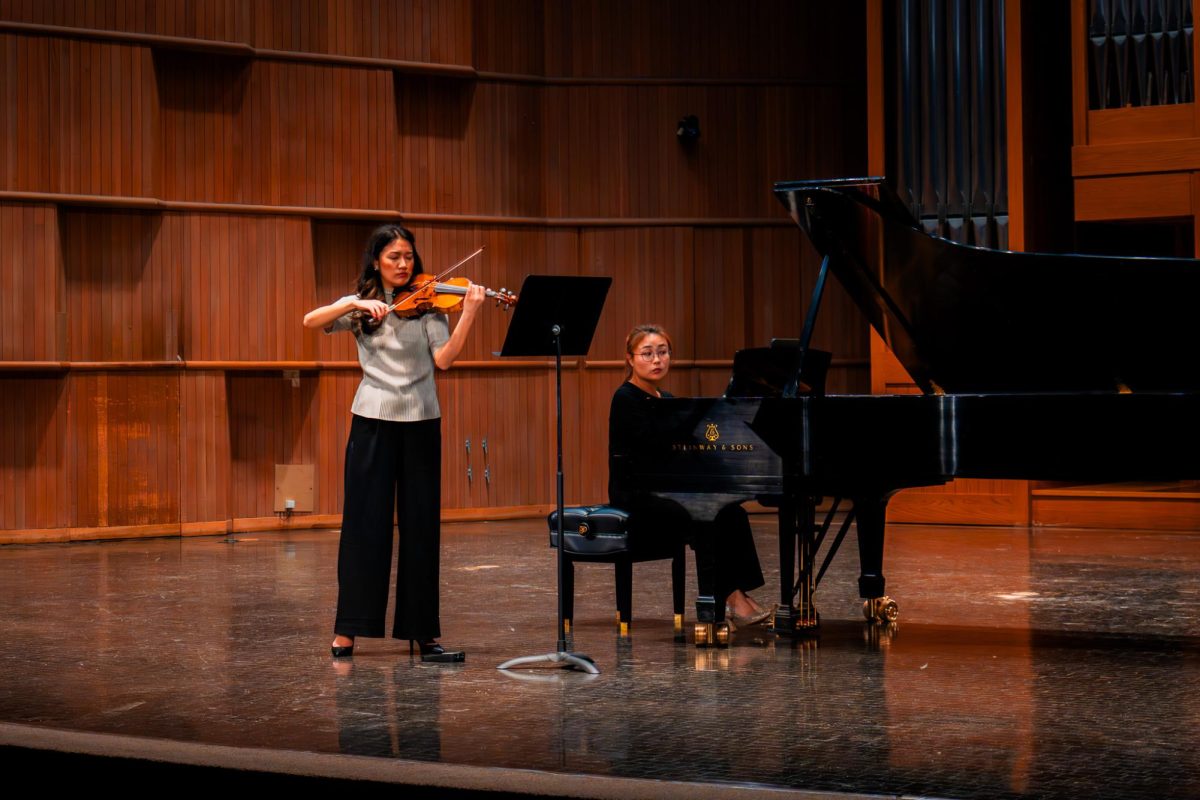Following the 2020 Election’s voter turnout, the youth vote has never been more relevant. With over half of Americans under age 30 voting in that election cycle, the youth vote has shown that it is a force to be reckoned with. To get a better grasp of UTSA’s youth vote, The Paisano conducted several interviews with members of the student body focusing on general sentiments and the key issues swaying their vote come Nov. 5.
The most readily apparent notion regarding this election cycle is disenchantment. According to the Columbia Journalism Review, 60% of Americans note being “worn out by coverage of the campaign.” Robert Purdurean, a freshman studying neuroscience, remarked that “it’s very polarized” and that “it feels a lot more like we’re trying to pick our favorite versus [picking] someone who we think would best lead our country.”
When asked to expand further he cited the conversation regarding the assassination attempts made on former President Trump to be a contributing factor to his sentiments. This disenchantment was echoed by other students, who remarked “Neither of [the candidates] are the best people ever.” and that this election cycle made them “a little nervous.” Regardless of the lack of enthusiasm, several issues stuck out as major players in influencing who they will vote for.
Upon reviewing the interviews, it immediately became clear that the top issue on the students’ minds was abortion. Every student interviewed cited this as one of the foremost issues that would sway their vote in the upcoming election. This is in sharp contrast with most of Texas, which when polled only cited abortion as one of the most important issues facing Texas 4% of the time. Yet these results still make sense in the context of Texas’s abortion policies. The Lone Star State has one of the most restrictive anti-abortion laws, with the only exception being when the mother’s life is in danger or is at risk of “substantial impairment of a bodily function.”
MaKayla Welty, a member of the Student’s for Life organization, spoke about how her own beliefs have impacted her views. “I believe that human life begins at conception, so I think that my morals do play a huge part in who I vote for.” She furthered this stance by stating “I don’t want someone in office that I know won’t do good for me and my morals.” Abortion was not the only matter that played a factor for her as she cited the rising immigration discussion as another reason for her voting stance. “As someone who is [of] Mexican descent, I think it’s really important.” She expanded by saying “I do think we should have borders,” and that the issue “needs to be solved.”
Gun control policy also seemed to play a significant factor in students who were polled. Grace O’Brien, who is majoring in Math for teaching, noted her concerns, focusing on the fact that she “plans on being a teacher.” “School shootings are a huge thing that I’m aware of, and that I hate to see so often in the news. Neither of them have strict gun control policies as I would like, but I watched the debate and Kamala at least mentioned them and mentioned the negative impact of such lax gun control.”
Throughout the interviews, social problems like this seemed to be a recurring theme, moving from gun control to other parts of social justice issues. Baraka Adams, a first-year bio major, was particularly vocal about this, citing Project 2025, abortion and gay rights, the last of which they stated, “affects them directly.” Yet Adams did not stop at social justice issues, as he commented on the economic situation which has become one of the biggest problems in America, specifically on the trend of inflation and the rising cost of living. Yet Baraka noted that “Kamala has made it clear that she doesn’t want to raise taxes and doesn’t want to make it more expensive to live in the U.S.” He also stated that he feels that “she can get those people who are in the middle to vote blue” by focusing on these economic issues.
Aside from specific policies, there were also major concerns about the reactions of voters coming up to and following the election results. Every student interviewed believed that some sort of negative reaction would occur, whether in the form of protest or riots. This is in line with most Americans, with two-thirds fearing violence could follow the election.
Grace O’Brien spoke on this topic specifically, stating that there would most likely be “more vocal protests, maybe… similar to what we had last year with the pro-Palestine protesters.” There was also visible worry from both sides of the aisle about election decisions, with those interviewed believing that the party opposite them would protest if their candidate did not win the white house come November. Yet there was still some hope in Robert Purdurean’s response, as he commented that the “general climate [at UTSA] seems pretty stable, despite everything that’s happening.”
The last day to register to vote is Oct. 7 and applications for mail-in ballots are due Oct. 25. Early voting begins on Oct. 21 and ends Friday, Nov. 1. Voter registration status and information regarding the voter information can be found at the Texas Secretary of State’s website online.








